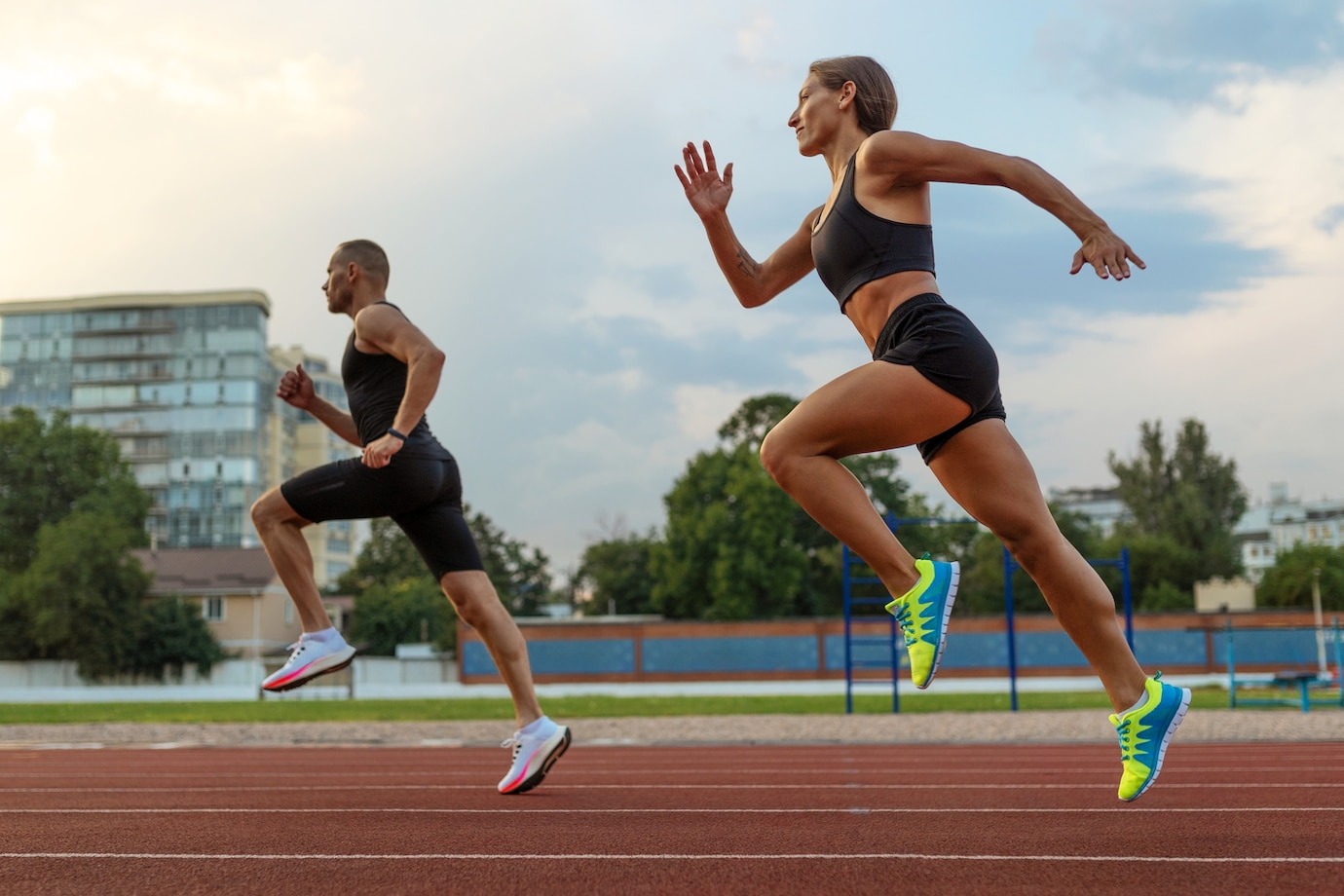It’s that time of year again, so get ready to run around outside and play in the wonderful summer sunshine! With the seasonal increase in temperature it is important to remember to increase your fluid intake accordingly; especially when times of extreme temperatures and humidity levels make is harder to exercise outside. It is important to always start a workout fully hydrated or even overhydrating before a workout as this can help stave off dehydration during exercise and lower your chances of encountering heat-related illnesses.
Ensuring you are properly hydrated prior to exercising also allows you to better control body temperature and increase blood plasma volume (which is essential to maintaining cardiac output). You should also continue to consume fluids during any workout that lasts longer than 1 hour and prepare your body for the environment. But how much additional fluid is enough? Here are some helpful tips to make sure you stay properly hydrated this summer:
Water Dehydration decreases performance! Studies have found that people who lose as little as two percent of their body weight through sweating have a drop in blood volume which causes the heart to work harder to circulate blood. A drop in blood volume may also lead to muscle cramps, dizziness, fatigue and heat illness including heat exhaustion and heat stroke. Drink 16oz (ounces) 2 hours before exercise and about 6-8oz every 15–20 minutes during exercise, aiming to match fluid intake to sweat loss. If you weigh yourself before and after you exercise, drink 20-24 fl oz water after exercising for every 1 lb lost.
Sports Drinks If you are an athlete exercising at high intensity for 60 minutes or more, then drinks that can provide 60 to 100 calories per 8 ounces might be appropriate to maintain performance. It is unlikely that you will need to replace losses of sodium, potassium or other electrolytes since you will probably not deplete these mineral stores during normal training. However if you are participating in a marathon, Ironman or other types of intense competitions, a complex sports drink that contains electrolytes may be considered.
Acclimate to your environment Exposing yourself to a hot and humid environment on a regular basis stimulates adaptations to the environment that will help to lessen the stress to your body overtime. Cardiovascular adaptations to exercising in the heat typically take 3–6 days however, full acclimatization can take 2 weeks or more as your body’s sweating response catches up to the other physical adaptations needed to efficiently exercise in the hotter environment. Therefore, it is important to take 2 weeks of workouts (that gradually increase in intensity) in the heat so that your body is fully acclimated and prepared for prolonged continuous exercise in hot and humid conditions.
Acclimatization Tips:
1. Prior to attempting to exercise in extreme conditions ensure that you are fit to exercise in normal weather conditions.
2. Exercise at lower intensities, and gradually increase the time spent exercising and the intensity of the exercises over your two week acclimatization period.
3. Use the cooler morning and evenings to your advantage and do your highest intensity exercises at these times and choose other, lower intensity exercises during the heat of the day.
4. Monitor body weight to ensure that you are hydrating properly to compensate for the increase in sweating due to the increased temperatures.
5. Dress appropriately (wear moisture wicking and light reflective clothing) and chose shady areas to exercise if you must exercise during the hottest times of the day. No plastic sweat suits!
Don’t let the hot weather stop you from exercising! Be safe and wear proper clothing when you are exercising outdoors and have plenty of fluids on hand. Have a healthy week!
Contributors: Kim Farmer and Michelle Beachem of Mile High Fitness. Mile High Fitness offers in-home personal training and corporate fitness solutions. Visit www.milehighfitness.com or email inquires@milehighfitness.com





